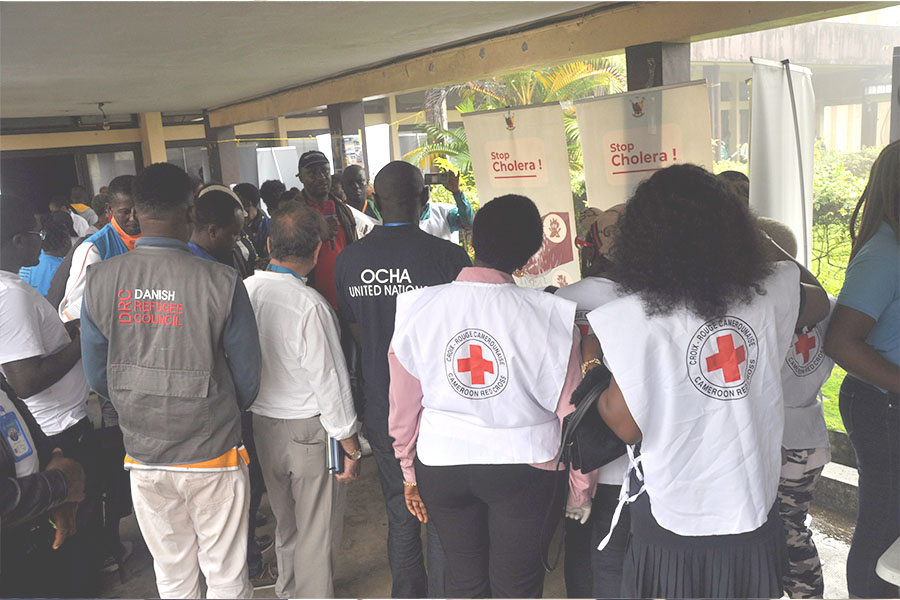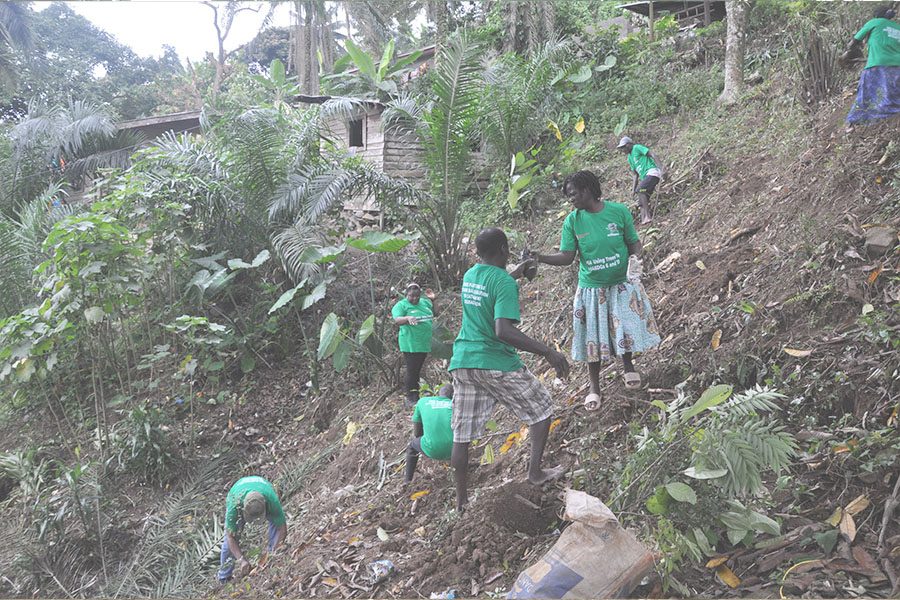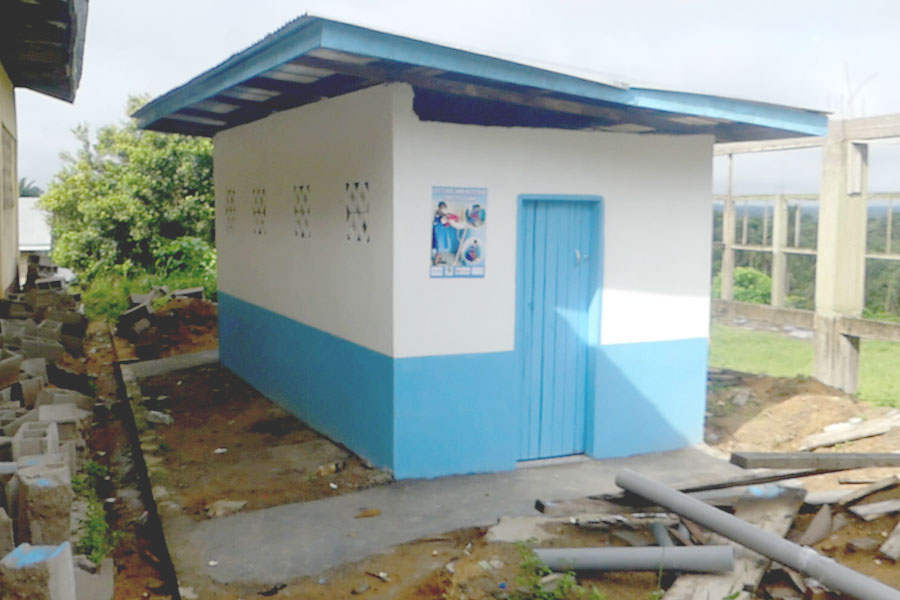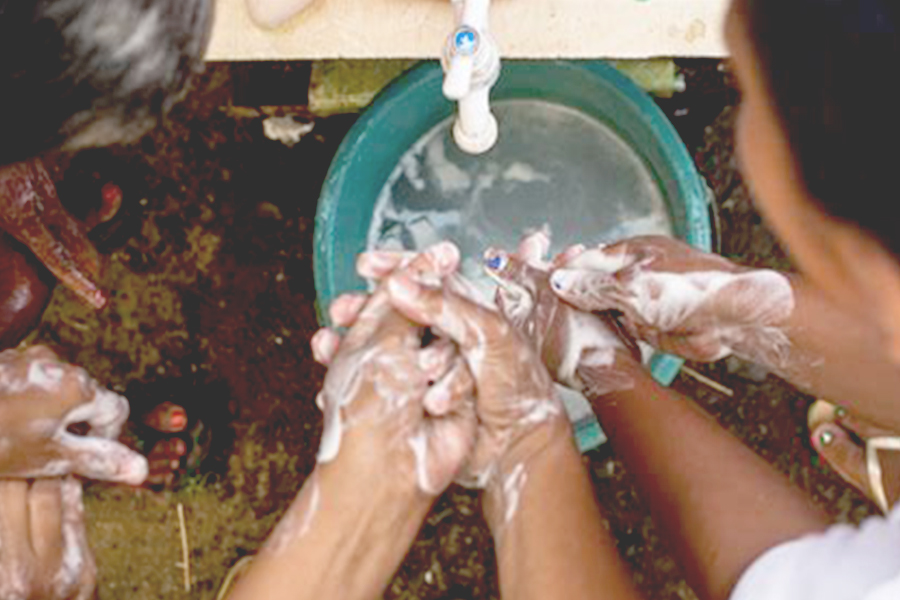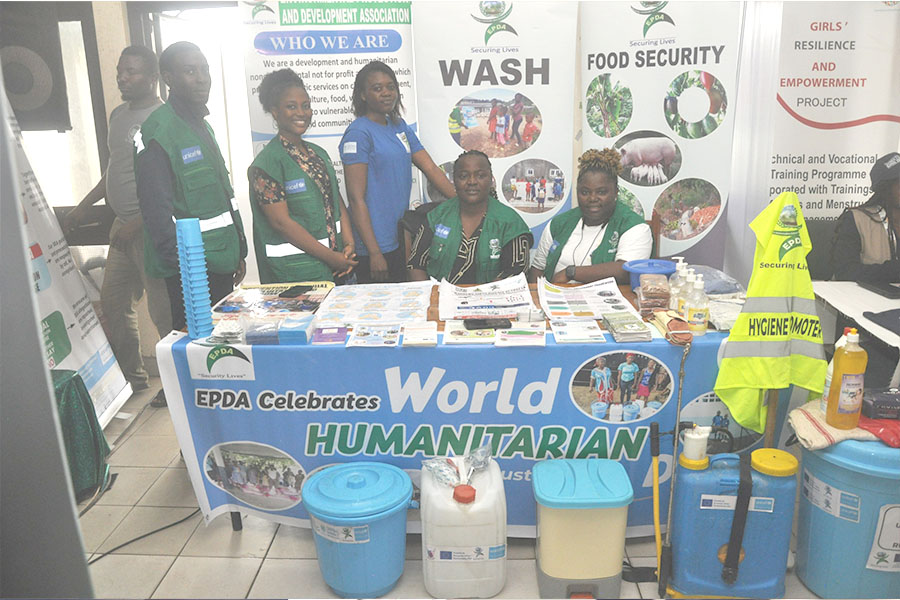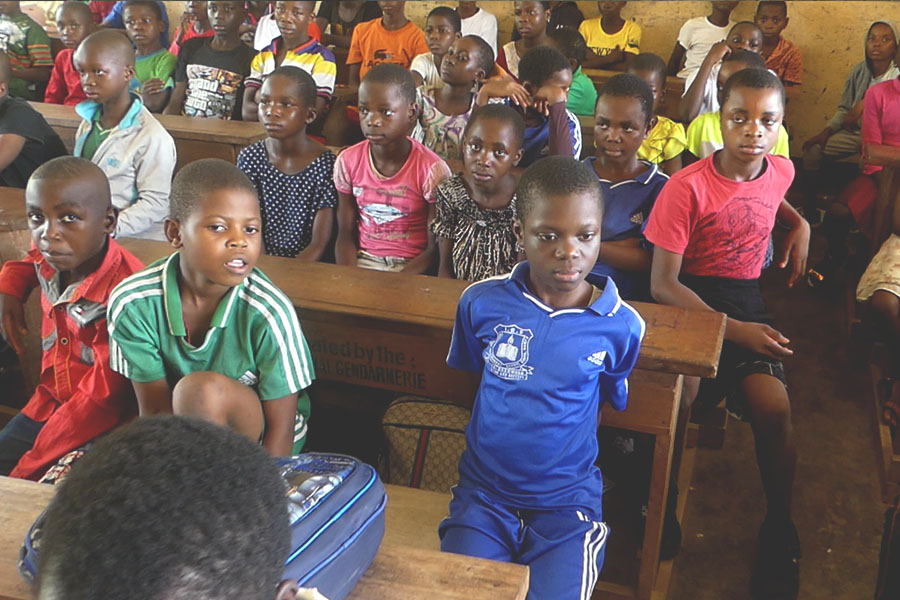Responding together It is no small task to balance personal concerns, professional duties, and to keep going for the sake of those we all serve, as part of our missions. We hope that your loved ones and colleagues are safe and healthy because that’s the most important thing since the outbreak of the new coronavirus (COVID-19) pandemic. As we learn together to navigate the landscape of the COVID-19 pandemic, it is reassuring that we can reach out to each other for help, ideas, and support. We are working tirelessly to raise awareness and to support where possible and necessary to reduce the prevalence and transmission of the pandemic. We are glad that partners are supporting us to reach out to people in need especially at this time when the available option by our government has been restrictions and lockdown. Securing Lives and putting people first As we respond to evolving needs and stand by our commitment to support strategies securing lives and serving vulnerable communities and people hit hardest by COVID-19 and other crises, the EPDA Team is out for business. We will continue to gather the latest guidance and resources from the field to keep up to date with best practices. Please feel free to contact us for support. EPDA Management is agile and determined The EPDA staff team is on the frontlines of sensitization, creating and implementing locally relevant solutions in the field. EPDA takes COVID-19 to a different level by mainstreaming sensitization and support into core activities. Food Security, We’ve compiled COVID-19 resources from across EPDA three core programs: Food Security, Environment and Natural Resource Management, and WASH. EPDA has proposed a series of Food Security and COVID-19 in-house learning opportunities which include meetings and focus group discussions. WASH Our field team is providing continuous updates and news on COVID-19 and its impact on food and agriculture as well as WASHES practices. We provide face masks, hand sanitizers, and handwashing facilities as our contribution towards infection prevention and control strategy. Environment and Natural Resource Management EPDA top management team provides state of climate change, biodiversity and resource management strategies in the midst of COVID-19 using communication messages, sensitization, and support.
Environment and Natural Resources Management (ENRM)
Fostering SUSTAINABILITY AND SOCIAL WELL BEING The NGO landscape provides among others the opportunity for people to seek lifelong jobs in other to satisfy their desire and passions for delivering quality services. While workers bring in their optimum and positive energies towards the realisation of organisational goals, there is a balance desire for improved working conditions for them and their dependents. The increasing desire of EPDA towards a transformational approach has led to the development of the environment and social economic development program. This program aims at improving the well-being of every individual working for EPDA and target beneficiary communities so they can reach their full potential. The success of society is linked to the well-being of each and every citizen within the context of directly or indirectly linked to EPDA. This therefore entails investing in people and bringing smiles on the faces of beneficiaries of our programs. This shall require the removal of barriers so that all workers (EPDA) most especially who are the direct beneficiaries of this program can journey toward their dreams with confidence and dignity. It consists of refusing to accept that volunteers who work to learn should one day find pleasure in their earnings commensurate with their competences and quality services and that people in low-income communities will lift out of poverty to boost development of their desires. It is about helping people so they can move forward on their path to self-sufficiency. Every new EPDA staff must have the opportunity to grow, develop their own skills and contribute to their families and communities in a meaningful way. If they are healthy, well educated and trained to remain or enter the workforce and are able to make a decent wage they are better equipped to meet their basic needs and be successful. Their families will also do well and the whole of society will benefit. Learning must start early in life. By investing in early learning initiatives, we can ensure a greater degree of success amongst our citizens. Making sure that children get a good start in their education goes a long way to increasing their success later in life. EPDA feels that having good employees will result in the likelihood of achieving better results. When EPDA succeeds, the social wellbeing and economic situation of its beneficiary communities definitely improve as that should be the only milestone for its success. EPDA believes that poverty reduction needs to be taken with a social development approach which includes but not limited to investing in people. This approach is called the human social economic development which fundamentally means a growth process which enables people and societies to realize their full potential. EPDA therefore needs to go beyond looking at government to find ways to develop and/or invest in the most valuable resources, the citizens. EPDA by taking this approach will need to share responsibility with community organizations, businesses, universities and municipalities in the task of improving the well-being of all its workers, volunteers, citizens and preventing and reducing poverty. The action Development and self-realization is therefore both a right and a duty springing from the very essence of human life. This is the fundamental source of motivation for EPDA’s involvement in environment and social economic development as its social enterprise initiative. EPDA will therefore invest resources and time to build social enterprises such as youth programs and services, job creation through food value chain development, health care for children, business start-ups, promotion of entrepreneurial leadership, top-up saves for employees, promotion of healthy, active living and safe and secure communities to name a few..
Open defecation
In communities without or with limited toilets, the practice of defecating in the open (such as in fields, bushes, or by bodies of water) becomes common thereby ravaging public health. Exposed faecal matter contaminates food, water and the environment, and can spread serious diseases, such as cholera, typhoid, COVID-19. Coupled with poor hygiene practices, exposure to faecal matter remains a leading cause of child mortality, morbidity, malnutrition, and can negatively impact a child’s cognitive development. It can cause adult mortality as well and a breakdown in the economy as families will spend more on health care. Open defecation is harmful to community health and well-being and can also undermine individual dignity and safety – especially for girls and women. When forced to travel greater distances from home to reach adequate hygiene facilities, girls and women are put at greater risk of violence. EPDA’s response EPDA is constantly working to provide safe sanitation for the most affected and hard to reach most vulnerable communities in rural and urban areas, and during emergencies. We mobilize communities, build toilets and showers, and partner with donors and local collaborators to plan and implement sanitation services. In emergencies, EPDA provides humanitarian relief actions to communities threatened by disrupted services and the risk of disease outbreak. We continue to improve on the provision of sanitation technology by using leading innovations; ensuring basic toilets are affordable, accessible and safe; and finding effective, sustainable solutions for sanitation challenges that harm vulnerable communities and their inhabitants. We create and train toilet management committees for public installed toilets. Ending open defecation Ongoing investment in sanitation services by households, communities and government is necessary to shift community behaviour so that ‘toilet use by all’ becomes the new norm and/or prerogative. EPDA’s commitment to reduce open defecation is intrinsic in our strategic work in vulnerable communities in urban and rural areas.
Water Sanitation and Hygiene (WASH)
“Making water, sanitation and hygiene services adaptive, safe and resilient” Climate change is impacting negatively on lifestyles and environments already. Climate change effects are strikingly felt through water with results such as water scarcity, contaminated water etc. Increased demand for water due to low rainfall can cause water sources (including boreholes and springs) to run dry. Conversely, heavy rainfall and flooding can damage water sources and sanitation facilities, carry runoff and waste into streams and lakes, and contaminate the water supply. Water scarcity through climate change and the resulting increase in the costs of water can lead to inequitable access. This may deprive households and communities of opportunities to collect the amount of safe water needed for proper hand-washing and hygiene, limiting people’s ability to stay healthy and strong. EPDA’s response EPDA brings years of experience in water, sanitation and hygiene (WASH) programmes to communities affected by climate change. We work tirelessly to protect vulnerable communities and people from the effects of droughts, floods, storms, rising sea levels, increased competition for water, and climate-related health impacts. We work at the local and national levels through a variety of activities: Assessing risks Identifying climate threats to infrastructure, services and communities is the first step to addressing them. EPDA works with stakeholders on small-scale projects to identify the risks posed to WASH services by climate change. Implementing solutions EPDA implements a variety of solutions to mitigate climate-related risks to WASH systems. This may include reviewing and altering the location or design of a water point or latrine (to make them flood- or cyclone-proof) or technology (deeper boreholes), or promoting renewable energy instead of diesel. Such changes can ensure that the water point or the latrine continues to be functional and accessible for decades, even after extreme weather events.. Engaging youth EPDA works with youth groups and other stakeholders to advance climate change into community driven WASH programs as well as in schools using multi-varieted approaches. We support schools in the creation, monitoring and mentoring of environment clubs that teach students about climate change and its causes. Influencing policy EPDA works with government authorities as well as other stakeholders (donors and networks) to highlight the impact of climate change on children, communities and WASH services, and to ensure climate change is included in key policy discussion platforms.
World humanitarian day 19th august 2024 theme: action for humanity
Every year on August 19th, the world comes together to observe World Humanitarian Day, a day, established by the United Nations General Assembly in 2009 to honor humanitarian personnel and those who have lost their lives working for humanitarian causes. The day was chosen to coincide with the anniversary of the 2003 bombing of the UN headquarters in Baghdad, Iraq, which killed 22 people, and the individuals they serve. This year’s theme, “Act for Humanity,” resonated deeply as the global community focused on the importance of collective efforts in alleviating human suffering. This year’s celebrations took place in the vibrant city of Buea, Southwest Region of Cameroon where approximately 30 national and international organizations converged to showcase their commitment to humanitarian work. The event was marked by an open ceremony attended by esteemed international dignitaries from organizations such as the Office for the Coordination of Humanitarian Affairs (OCHA), the International Rescue Committee (IRC), and the United Nations High Commissioner for Refugees (UNHCR), the United Nation Children Emergency Fund (UNICEF) and the Norwegian Refugee Council (NRC). Their presence underscored the global solidarity in addressing humanitarian crises. One of the day’s highlights was the unique opportunity for organizations to showcase their various activities. Like a humanitarian fair, the event allowed each group to display its projects, achievements, and future plans. This not only fostered a sense of pride among the participants but also provided valuable networking opportunities and the chance to learn from one another’s experiences. Among the notable participants was Environmental Protection Development Association (EPDA), a key implementing partner of UNICEF. Their active involvement highlighted the collaborative spirit that defines humanitarian efforts To crown it all A series of sports games were organized, fostering a sense of unity and camaraderie among participants. These games not only provided a platform for friendly competition but also served as a reminder of the resilience and strength of communities coming together in times of adversity. World Humanitarian Day is more than just a date on the calendar; it is a call to action for individuals and organizations alike. As we reflect on the events in Buea and the collective efforts of all involved, let us remember that each action, no matter how small, contributes to the greater good. Together, we can take meaningful steps toward a more compassionate world.
WASH in Schools
“Making WASH services available in academic environments” Many schools and/or learning institutions lack safe drinking water, toilets and soap for hand-washing, making learning and teaching difficult for children and teachers respectively – with devastating consequences for the future of children most especially. Children who cannot wash their hands face a greater risk of infection and diarrhoeal disease than those who can, putting them at risk of missing more school days. EPDA is developing and building a huge resource base in order to support learning institutions in rural and urban settings. We also focus on establishing and rehabilitating WASH facilities in schools. Along with our partners, we advocate to governments, donors and the private sector to improve WASH services in schools, and to facilitate knowledge exchange and learning. WASH in emergencies “SSafing and serving vulnerable people and their communities in times of crisis” During humanitarian emergencies, the risk of human rights violations, violence and displacement to the affected individuals is extreme. Above all, water and sanitation systems are often vulnerable to attack. With no potable water or adequate sanitation and hygiene facilities, individuals especially those already suffering from malnutrition and weakened immune systems — become even more susceptible to water-borne diseases. To prevent the outbreak of public health emergency, water, sanitation and hygiene (WASH) services needs to be tailored to support communities in times of crisis – including during armed conflict and other fragile contexts. EPDA’s response EPDA’s approach to WASH interventions during emergencies focuses on preparedness in conflict and natural disaster risks. EPDA aims at securing lives in fragile and vulnerable contexts by first providing water in containers, treating piped water, repairing damaged water supply and sanitation systems, digging wells, constructing temporary latrines, providing essential hygiene items and promoting hygiene practices. Peace preservation By intervening in both humanitarian and development related work, we mainstream peace education and encourage spirit of social cohesion especially in conflicted affected localities. EPDA support vulnerable people with water and sanitation services to IDPs, host families and host communities. After a disaster EPDA conducts rapid assessments of the needs of populations affected as well as recovering from disasters to facilitate the process of defining support streams. We work to assess physical damages, economic loss, and the cost of recovery in the wake of natural disasters and humanitarian emergencies, and partner with international organizations to assist those in critical need.

